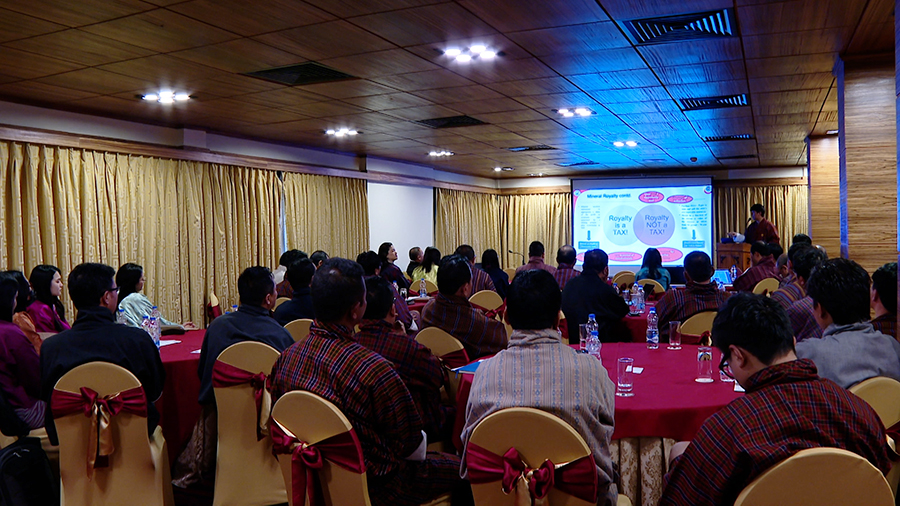 The Department of Geology and Mines is proposing lower royalties on processed mineral exports. The move aims to boost value addition in the mining sector and support economic growth. The proposal is under review and could be tabled in Parliament this summer.
The Department of Geology and Mines is proposing lower royalties on processed mineral exports. The move aims to boost value addition in the mining sector and support economic growth. The proposal is under review and could be tabled in Parliament this summer.
Right now, dolomite carries a flat royalty rate of 6.5 per cent whether it’s raw, crushed, or powdered. But that could soon change.
If a new proposal goes through, the royalties on raw dolomite will go up to 7 percent, while value-added forms like calcined, sintered, or fused dolomite will see a drop to 4.5 per cent.
It’s part of a broader push to encourage more processing within the country and add value to mineral exports.
Phuntsho Namgyal, Director of Department of Geology and Mines said “The value-addition would actually mean a product, one metric ton of that product would actually fetch much more in terms of revenue, let’s say four times to five times. So, our royalty is basically a percentage of that revenue generation. So, the absolute figure of royalty accumulation will not go down. That’s number one. And number two, overall economic benefit by way of employment, by way of bringing in technology, would actually have a larger implication for the economy.”
The Association of Bhutanese Industries says the proposed changes are long overdue, but boulder exporters are pushing back. They argue that there’s no need to increase the royalty on boulders.
The new structure suggests raising the royalty on raw boulders from 2 percent to 3 percent. However, exporters point out that there’s actually a higher demand for raw boulders compared to processed ones.
Karma Gyeltshen, Vice-President of Regional Chapter, Bhutan Exporters Association said “We have to market the product according to the demand. So, and I told you that, you know, Bangladesh, both the land port in Burimari and Bangla Banda, they have installed a series of, you know, small crushing machines.One of the reasons could be because of the rate. Maybe I think, you know, they must be finding it cheaper to buy boulder, and then they have already set up a plant, they have already invested.”
Singye Dorji, President of Association of Bhutanese Industries said “it’s also been noted in the erstwhile economic development policies and the mineral development policies that value-added minerals will be levied low royalties. Unfortunately, for whatever reasons, this could not materialize. The department has done their presentation today, but it is still just a first step. I think the parliament controls the taxes and levies authority of the government, and that is still a significant milestone to pass.”
The royalty rates for export of minerals was last revised in 2016.
The State Mining Corporation, a major player in the sector, also acknowledged the positive intent behind the revision but emphasised that royalty alone is just one part of a much bigger picture.
SamtenDolkar/Kinley Bidha
Edited by Phub Gyem






